Emo is a rock music genre characterized by emotional, often confessional lyrics. It emerged as a style of hardcore punk and post-hardcore from the mid-1980s Washington, D.C., hardcore punk scene, where it was known as emotional hardcore or emocore. The bands Rites of Spring and Embrace, among others, pioneered the genre. In the early and mid 1990s, emo was adopted and reinvented by alternative rock, indie rock, punk rock, and pop punk bands, including Sunny Day Real Estate, Jawbreaker, Cap'n Jazz, and Jimmy Eat World. By the mid-1990s, Braid, the Promise Ring, and the Get Up Kids emerged from Midwest emo, and several independent record labels began to specialize in the genre. Meanwhile, screamo, a more aggressive style of emo using screamed vocals, also emerged, pioneered by the San Diego bands Heroin and Antioch Arrow. Screamo achieved mainstream success in the 2000s with bands like Hawthorne Heights, Silverstein, Story of the Year, Thursday, the Used, and Underoath.
Jade Tree International, Inc. is an independent record label formed by Darren Walters and Tim Owen in 1990 in Wilmington, Delaware.

Jets to Brazil was an American indie rock band from Brooklyn, New York, USA. They formed in 1997 and were active until 2003.

Jawbreaker is an American punk rock band active from 1986 to 1996, and again since 2017. The band is considered to be extremely influential to the 1990s emo and punk genre with their "poetic take on hardcore." Their influence on the punk scene has led some critics to label Jawbreaker as the best punk rock band of the 1990s.
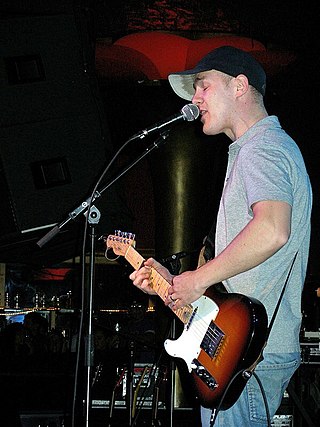
The Promise Ring was an American rock band from Milwaukee, Wisconsin, that is recognized as part of the second wave of emo. Among various other EPs and singles, the band released four studio albums during their initial run: 30° Everywhere (1996), Nothing Feels Good (1997), Very Emergency (1999), and Wood/Water (2002). Their first two albums solidified their place among the emo scene; their third effort shifted toward pop music, while their final record was much more experimental in nature. The band initially broke up in 2002 and has reunited sporadically since then to perform live, but no new material from the band has since been released. They were last active for a live performance in 2016.

Cap'n Jazz was an American emo band formed in Chicago in 1989 by brothers Tim and Mike Kinsella, who were joined by Sam Zurick and Victor Villarreal. After a number of name changes and the addition of guitarist Davey von Bohlen, the band began to earn a cult following in the Chicago area and the Midwest.

Orange Rhyming Dictionary is the debut studio album by American rock band Jets to Brazil, released October 27, 1998 on Jade Tree. Following the break up of Jawbreaker, frontman Blake Schwarzenbach moved to New York City, and formed Jets to Brazil with bassist Jeremy Chatelain and drummer Chris Daly. J. Robbins was drafted in to produce the band's debut album at Easley Studios in Memphis, Tennessee. With Orange Rhyming Dictionary, Schwarzenbach moved away from the punk rock sound of Jawbreaker into indie rock and post-hardcore.
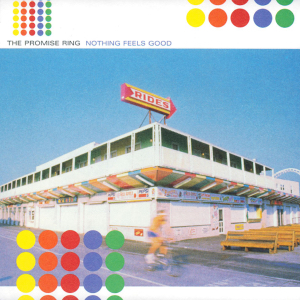
Nothing Feels Good is the second studio album by American rock band the Promise Ring, released on October 14, 1997. The album has gained a cult following, and is frequently regarded as one of the most influential records of the emo genre. The title of the album was used as the name of the book Nothing Feels Good: Punk Rock, Teenagers, and Emo by Andy Greenwald. Original bass player Scott Beschta is credited with writing and playing all the bass parts for the album, although he had been fired by the time the album was released.
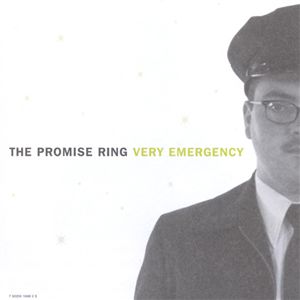
Very Emergency is the third studio album by American rock band the Promise Ring, released on September 28, 1999 through the label Jade Tree. Following the release of their second studio album Nothing Feels Good (1997), bassist Scott Beschta was replaced by Tim Burton. After a van accident, which resulted in a six-week break, Burton was replaced by Scott Schoenbeck. The band recorded their next album at Inner Ear Studios in Washington, D.C., co-producing it with J. Robbins. Very Emergency is a power pop and pop rock album that moves away from the emo style of their earlier works. It continued the sound of the Boys + Girls (1998) EP, and was compared to the work of the Lemonheads, the Pixies, Soul Asylum and the Wedding Present.
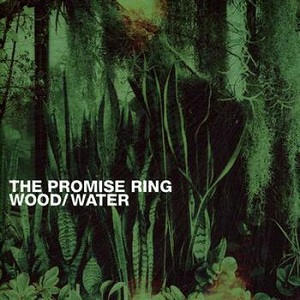
Wood/Water is the fourth and final studio album by American rock band the Promise Ring. It was released by Anti- on April 23, 2002. While touring in support of their third studio album, Very Emergency (1999), the Promise Ring were due to leave for a European tour; frontman Davey von Bohlen was diagnosed with meningioma on the day of departure. As a result of a post-surgical infection, the band could not tour for the remainder of 2000. In early 2001, the Promise Ring made demos with Kristian Riley, and then recorded a track with producer Mario Caldato Jr. in Los Angeles, California. The Promise Ring flew to the UK for six weeks of recording with Stephen Street, before returning to Milwaukee, Wisconsin for further recording. The album moved away from the emo sound of the band's past works into alternative country, indie rock, and pop territory.

Nothing Feels Good: Punk Rock, Teenagers and Emo is a book by Andy Greenwald, then a senior contributing writer at Spin magazine, published in November 2003 by St. Martin's Press. Greenwald documents the history of the emo genre from its mid 1980s origins in Washington, D.C. to a more recent crop of bands, such as Thursday and Dashboard Confessional. The book received generally favorable reviews from music publications, with it appearing on best-of lists by Alternative Press and NME.
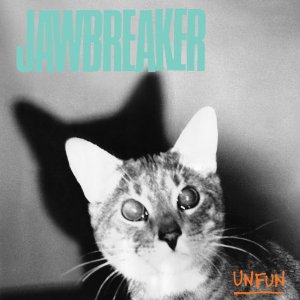
Unfun is the debut studio album by American punk rock band Jawbreaker, released in May 1990 through Shredder Records. After going through several names and a line-up change, Jawbreaker sent a copy of "Shield Your Eyes" to punk publication Maximum Rocknroll, which would later catch the attention of Shredder Records founder Mel Cheplowitz. Following the release of the Whack & Blite EP and the "Busy" single, members of the band returned to education. While this was occurring, they wrote material that would appear on their debut album, which was then recorded with producer Richard Andrews.
d.b.s. were a punk rock band from North Vancouver, British Columbia, Canada. From their beginnings in 1992 to their eventual breakup in 2001, they gained popularity in the Canadian punk rock scene, and to a lesser extent, the U.S. punk rock scene.

Do You Know Who You Are? is the first and only studio album by American rock band Texas Is the Reason. After finalizing their line-up, wrote and released their self-titled debut EP in late 1995. Following it, they began recording their debut album at Oz Studios in Baltimore, Maryland, co-producing it with Jawbox member J. Robbins. Preceded by an east coast tour with labelmates Gameface, Do You Know Who You Are? was released on April 30, 1996 through Revelation Records. It was promoted with a European tour with Samiam, two US tours, and a tour of Germany with Queerfish and Starmarket. Shortly after the Germany stint, the group broke up.
Emo pop is a fusion genre combining emo with pop-punk, pop music, or both. Emo pop features a musical style with more concise composition and hook-filled choruses. Emo pop has its origins in the 1990s with bands like Jimmy Eat World, the Get Up Kids, Weezer and the Promise Ring. The genre entered the mainstream in the early 2000s with Jimmy Eat World's breakthrough album Bleed American, which included its song "The Middle". Other emo pop bands that achieved mainstream success throughout the decade included Fall Out Boy, the All-American Rejects, My Chemical Romance, Panic! at the Disco and Paramore. The popularity of emo pop declined in the 2010s, with some prominent artists in the genre either disbanding or abandoning the emo pop style.
Forget Everything You Know is the final album released by the North Vancouver punk band d.b.s. It was released by Ache Records on April 1, 2001. Only 1,000 copies were pressed.
If Life Were a Result, We'd All Be Dead is the fifth and final full-length album released by the North Vancouver punk band d.b.s. It was released by Crap Records in February 2000. Although their final full-length, the songs on this album were actually recorded in 1997, before their previous album. The songs were intended to be released on various singles, but this plan never came to fruition.

Shorter, Faster, Louder is the second album by the Philadelphia hardcore punk band Kid Dynamite. Their final album, it was released in 2000 by Jade Tree.
Midwest emo refers to the emo scene and/or subgenre that developed in the 1990s Midwestern United States. Employing unconventional vocal stylings, distinct guitar riffs and arpeggiated melodies, Midwest emo bands shifted away from the genre's hardcore punk roots and drew on indie rock and math rock approaches. According to the author and critic Andy Greenwald, "this was the period when emo earned many, if not all, of the stereotypes that have lasted to this day: boy-driven, glasses-wearing, overly sensitive, overly brainy, chiming-guitar-driven college music." Midwest emo is sometimes used interchangeably with "second-wave emo". Although implied by the name, Midwest emo does not solely refer to bands and artists from the Midwestern United States, and the style is played by outfits across the United States and internationally.












